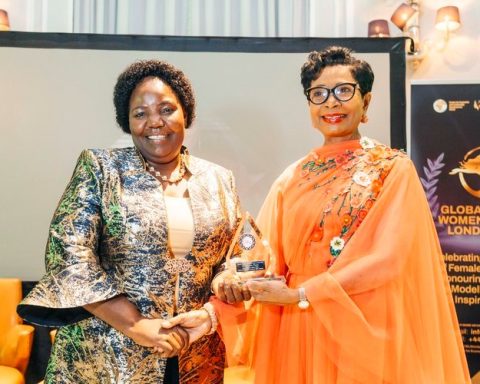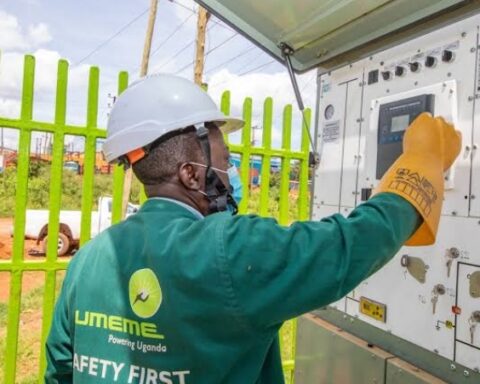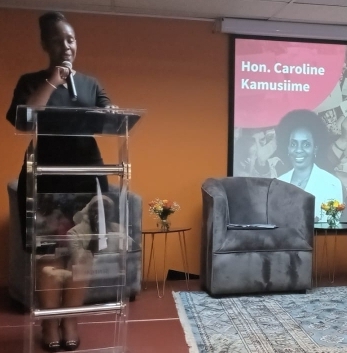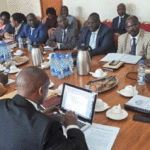The Electricity Regulatory Authority (ERA) has made amendments to the electricity tariff structure with an aim of promoting access to, and use of electricity.
The development was announced Thursday by the Chairperson of ERA Ms. Sarah Kanabi Wasagali, who noted that ERA’s aspiration for the next five years is to be a recognizable institution in the promotion of sustainable electricity supply for socio-economic transformation.
“Under the Electricity Act, 1999, Section 10 (f) and (g) and Regulation 16 of the Electricity (Application for Permit, License and Tariff Review) Regulations, 2007, the Authority is mandated to make amendments to the existing Tariff Structure applicable to electricity customers,” Wasagali said.
She revealed that the amendments ERA has undertaken include:
Introduction of a Declining Block Tariff for Domestic Consumers also codenamed the “Cooking Tariff” aimed at encouraging Cooking with Electricity in homes;
Promotion of the Productive Use of Electricity in Industrial Parks; and, Re-categorization of the Beneficiaries of the Lifeline (Social) Tariff.
Wasagali said that the amendments have been made to cater for the current and future needs of the Electricity Supply Industry in an effort to reduce the cost of electricity starting 2022.
She revealed that the following major assumptions were taken into consideration by the Authority during the determination of the electricity tariffs for 2022;
The impact of the Covid-19 pandemic on the operations including, energy losses, revenue collection, industrial productivity, and its impact on demand and financial sustainability of the Electricity Supply Industry.
The Quarterly Tariff reviews implemented by the Authority in 2014, 2015, 2016, 2017, 2018, 2019, 2020, and 2021 that adjust the annual base tariff for changes in inflation, exchange rate, international fuel prices will continue to be implemented in 2022.
Electricity demand is expected to grow at an annual rate of approximately 11.6% in 2022. The total energy purchased by UETCL is expected to increase from 5,014 GWh projected for 2021 to 5,595 GWh in 2022.
The average water release at Nalubaale/Kiira is projected at 1,000 Cubic meters per second (cumecs) for 2022 translating into an annual generation of 1,314GWh from Nalubaale/Kiira and 1,434 GWh from Bujagali Energy Limited.
Isimba Hydro Power Plant, commissioned in March 2019 is expected to generate 966 GWh.
Karuma HPP is expected to be commissioned in June 2022 and shall be used to contribute to meeting the demand for the forecasted energy.
West Nile region is expected to be connected to the National Grid effective September 2022.
The Uganda Shilling has depreciated against the United States Dollar from Ush/USD 3,535.04 used in the determination of the retail tariffs for the fourth quarter of 2021 to Ush/USD 3,564.09 on 30th November 2021 as published by Bank of Uganda. This represents a depreciation of 0.82%. The exchange rate has an effect on the Electricity Supply Industry financing and the resultant Annual Base tariffs for 2022.
Wasagali said the Authority shall continue to implement the declining block tariff structure for the Large Industrial and Extra-Large Industrial Tariff Year 2022 in a bid to boost production through;
Review of the lifeline tariff structure to target only the deserving low-income earners given the objectives of social tariffs. The lifeline tariff is now applicable to the first 15kWHs per month for only customers who consume not more than 100kWH per month.
Introduction of the declining block tariff to encourage domestic consumers to cook using electricity – between 81kWh and 150kWh.
Implementation of a pilot direct purchase of electricity by consumers in Buikwe MMP and Kapeeka Industrial Parks at US cents 5/kWh. The projected revenue shortfall of Ush 12 billion in the event the consumers in Buikwe MMP and Kapeeka Industrial Parks do not respond to the tariff reduction by increasing electricity consumption shall be provided by government.
While announcing the approved annual base end-user tariffs for 2022, Wasagali said; “In accordance with Amendment Number Two of the Umeme Limited License for Supply of electricity, the retail tariff charges for electric service shall be subject to automatic fuel cost charges, foreign exchange rate fluctuation adjustment, and an inflation adjustment that will be calculated in accordance with the Authority Quarterly Tariff adjustment Methodology, 2014.”
She added that; “The approved Annual base end-user tariffs for 2022 which also double as the applicable tariffs for quarter one of 2022 will be subjected to quarterly adjustment factor for hinges in micro economic parameters across the remaining three quarters of the tariff year.”
- Ush 747.5/kWh, Ush 597.1/kWh, 472.0/kWh, Ush 355.0/kWh, Ush 300.2/kWh, and Ush 370.0/kWh for Domestic, Commercial, Medium Industries, Large Industries, Extra-Large Industries, and Street Lighting respectively for the period January – March 2022.
These are also presented in table 1 below.

A Preferential Tariff of Ush 451.4/kWh has been approved for institutions starting with the Mwana Mugimu Mulago National Referral Hospital cooking pilot project;
Declining Block tariff for large and extra-large industrial consumers shall be as indicated in table 2 below.

A Preferential Tariff of Ush 412.0/KWh has been approved for domestic consumers for units consumed between 80KWh and 150KWh per month;
A Preferential tariff for the consumers in the Buikwe MMP and Kapeeka Industrial parks has been approved as shown in Table 3 below:

![]()




























